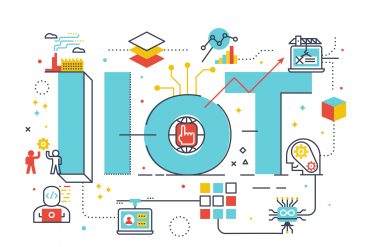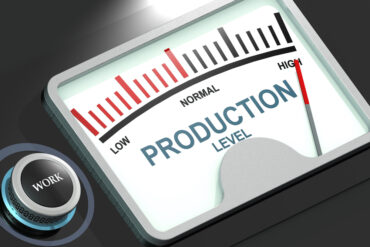
Blockchain doesn’t just improve existing industry applications, it overturns our very understanding of how those industries can operate.
Blockchain and cryptocurrency continue to occupy the top of the hype cycle, but what do you know about the full potential of blockchain? The underlying technology revolutionizing our concept of money is bringing rapid change to many areas of our lives we never thought needed to change, much less would.
See also: Blockchain, Unchained: 5 Key Use Cases
The basis of blockchain
Deloitte expects that 2020 will mark the start of the Blockchain decade. There’s no reason to suspect otherwise. Everyone from banking to car sales is taking advantage of the technology that was the driving force upending our understanding of how currency even works.
Blockchain is a virtual ledger. It processes enormous amounts of data by recording transactions in a nearly corruption-proof format. Each transaction gets recorded into a “block” of information and attached to the previous transaction before it. The ledger remains unchanged in history but continually updates to reflect any new actions.
Bitcoin exploded thanks to blockchain, but entrepreneurs in other industries quickly noticed applications in other areas besides finance. Use cases are endless when we’re talking about a totally transparent, perfect record that’s not easily falsified.
Now, everywhere you turn, industries are talking about it. Blockchain doesn’t just improve existing industry applications; it overturns our very understanding of how those industries can operate. Skeptical? Here for the approval of Industry 4.0, I present: Blockchain’s Great Upheaval.
Exciting applications
Finance is reeling over the possibilities, but what about other fields? Some exciting applications you may not have considered are just on the horizon (if not already here).
Industrial IoT: Oh yes. Our newest industrial IoT phase is coming thanks to the telco edge, 5G, and a sprinkle of blockchain. In fact, it could be just the thing large enterprises need to manage truly large-scale IoT solutions to the ends of the earth.
Blockchain allows communication between incomprehensible amounts of devices. IBM and Samsung, for example, are putting it to the test with the ADEPT network, allowing devices to work autonomously, managing things like software updates or energy management.
These use cases span a range of industries from energy companies to large scale agriculture or even oil or natural gas. Blockchain provides solutions designed for autonomy, releasing these enterprises from the burden of centralized control.
Supply Chain Management: Blockchain enables a secure record of each stage of the production process. Much like purchasing or financial transactions, the supply chain is its own series of transactions.
Companies are looking for clearer and more efficient ways to check for compliance, sourcing, and many other challenging aspects of operating in a global business world. Consumers want to know not just where products are manufactured but where materials come from and when.
Blockchain might offer solutions to that issue. With blockchain records, the supply chain components could have transparent records that are nearly impossible to forge. Consumers can check up on each portion of the production process themselves. Companies like Walmart have joined IBM’s Food Trust Network, a distributed ledger tracing food origins.
Energy Management: Blockchain could provide distributed solutions to a historically centralized industry. Eliminating the middleman could bring down the cost of energy while providing better efficiency across the board.
It may also help solve challenges in delivering renewable energy. Two companies in Spain are experimenting with using blockchain to verify that power is clean, while a Brooklyn startup is using blockchain to allow consumers to buy and sell energy between neighbors.
Decentralizing energy opens up many options for providing energy and keeping down costs. Blockchain facilitates many new ideas in the energy field that could also help energy companies keep up with changing regulations, populations, and energy availability.
Governance: Smart contracts. Verifiable transactions. Background checks. Businesses can use blockchain for a number of business applications. These ledgers provide compliance for contracts, ensure consistency, and facilitate organization.
Blockchain can help companies manage their entire workforce and operations with greater transparency. The tool could also help companies overcome difficulties hiring workers from overseas or overcoming border difficulties executing contracts or projects from country to country.
Social purpose: Younger generations are forcing companies to reconcile their actual business practices with their proposed mission statements. Blockchain could allow companies to verify their business practices and attract customer loyalty, a challenging prospect in the world of global eCommerce.
The fundamental shift could be a great thing. Consumers will have more control over the companies they support, choosing ones with missions that align with personal values. Companies will stand out in a crowd by offering records of things like sourcing or production methods.
Federal Mail: Yes, the post office could be up for an evolution. A distributed ledger has the potential to reduce tracking costs and improve delivery and streamline supply chain management. It could also streamline the financial side of the post office, helping a giant organization track things like money orders and verify customer identities.
In fact, the post office released a report back in 2016 outlining the potential of blockchain. The organization found numerous examples of
The biggest change is in customer relations
Blockchain is enabling companies to reach customers and empower them to operate without heavy centralization. Blockchain allows companies to make changes in their core business models.
Beyond market forces, blockchain may contribute to the flexibility and transparency required for businesses to operate in a world of disruptions. Blockchain may also help companies pivot and lean up operations, providing more customer-centric operations in the process. It’s exciting to see what will happen.





























